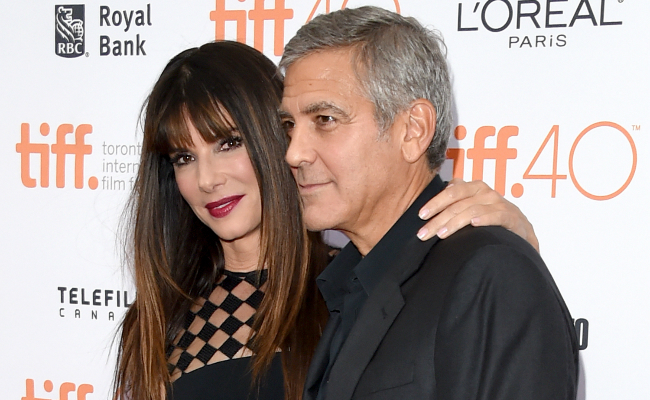
George Clooney is quite the renaissance man. Aside from his acting career — which has spanned more than 30 years — the man has made a name for himself with his behind-the-camera work and various social activist causes. Clooney recently took a trip to Toronto for the premiere of Our Brand In Crisis. The movie stars Sandra Bullock as “Calamity” Jane Bodine and according to both her and Clooney — who produced the movie — the lead role in question was originally written for a man.
Clooney admitted it wasn’t until Bullock reached out to him regarding the script — and to possibly change the gender of the role — that the project even started taking shape. With the film set to hit theaters on October 30th, Clooney spoke with Entertainment Weekly at the premiere and urged more filmmakers to gender swap their lead roles:
There’s a lot more [roles] out there if people just started thinking.
While it looks like Clooney has become quite outspoken in fixing Hollywood’s gender imbalance, it was initially Sandra Bullock’s move that set this whole thing in motion. The actress explained to EW that the scripts she was receiving lacked any real excitement which led her to seek out roles written for men:
“About two-and-a-half years ago I put out feelers saying, ‘I’m not reading anything I’m excited about,’ ” Bullock told EW of the film. “‘Are there any male roles out there that [the filmmakers] don’t mind switching to female?’ ”
Since she already had a rapport with Clooney — who co-starred with her in Gravity — she reached out to the actor/writer/producer/director and soon the starring role in this new film was her’s. It’s worth pointing out that this isn’t a new trend, but one that seems to be gaining momentum as Paul Feig’s all-female Ghostbusters is on the horizon and let’s not forget that Road House remake starring Ronda Rousey.
The issue of sexism and gender imbalance in Hollywood is also nothing new but maybe we’re finally getting to a place where the tides are shifting. Getting to a place where we have a gender balance in the creative workforce sounds like a no-brainer and really is a long time coming.
(Via Entertainment Weekly)






